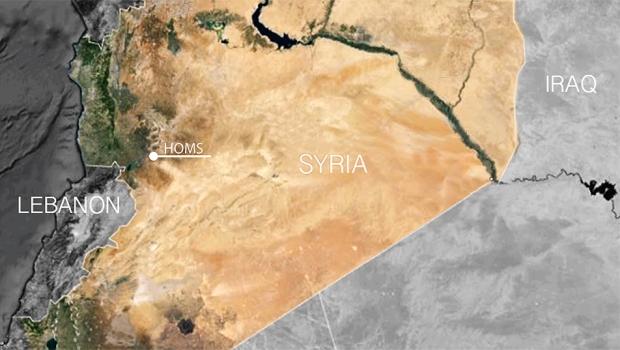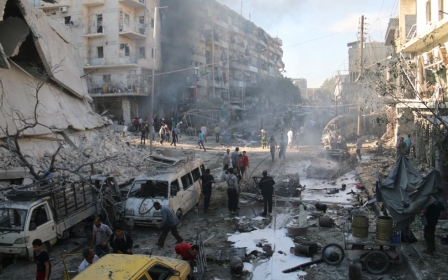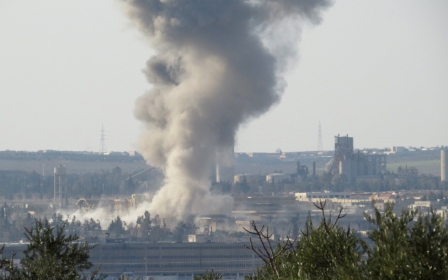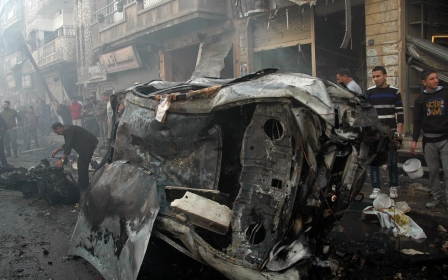NGO: Deal for Syria rebels to withdraw from Homs bastion
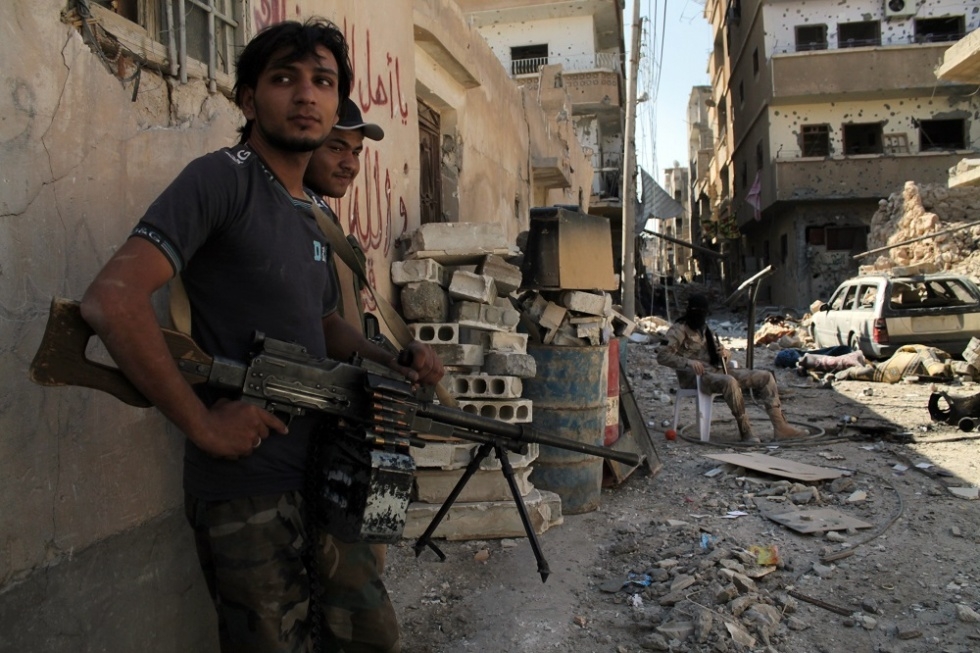
Syria's government and rebels have reached a deal under which opposition fighters holed up in besieged parts of Homs city will withdraw during a ceasefire, an NGO said on Friday.
The Syrian Observatory for Human Rights said a truce was already in place in the Old City and other rebel-held areas under government siege, and that around 1,000 fighters were expected to withdraw.
Syria's third largest city has been under siege for nearly two years. In February, the UN evacuated around 1,400 people who had been trapped inside an army-controlled neighbourhood. Around 1,300 people, mostly fighters, remained behind.
Earlier this month, the city's rebel fighters and representatives of President Bashar Assad had reportedly agreed to a framework for further negotiation discussions. The rebels’ negotiating team were due to meet with intelligence officials on 11 April to ratify the deal, but the meeting failed to take place for unexplained reasons. At the time, The Washington Post reported that the deal fell through because pro-government militias, who were involved in an offensive on the city while the talks were going on, opposed it.
"A truce began on Friday... with the goal of applying a deal reached between the sides," the Britain-based monitoring group the Syrian Observatory for Human Rights said.
New MEE newsletter: Jerusalem Dispatch
Sign up to get the latest insights and analysis on Israel-Palestine, alongside Turkey Unpacked and other MEE newsletters
"The deal stipulates a ceasefire and the withdrawal of the rebels in the Old City," which has been under siege for two years.
"As a result of the deal, the army will retake control of these areas," it added.
The deal was confirmed by an activist on the ground in Homs, who said the withdrawal had yet to begin.
If the accord holds and the fighters withdraw, only the neighbourhood of Al-Waer, where many of those fleeing besieged areas of Homs took refuge, will remain under rebel control.
Meanwhile, in a recording posted online on Friday, Al-Qaeda chief Ayman al-Zawahiri for the first time ordered Al-Nusra's chief Mohammed al-Jolani to end fighting with ISIL.
Zawahiri ordered that "all soldiers of the Front immediately cease fighting" other jihadist groups.
Instead, he urged Jolani to "devote himself to combat the enemies of Islam, specifically Baathists, Shiites and their allies." The Baath is Syria's ruling party, headed by Assad.
Zawahiri also renewed his call for ISIL to leave Syria, urging the group's chief Abu Bakr al-Baghdadi to "devote himself to wounded Iraq, which needs you to redouble your efforts" there.
Also in Syria on Friday, suicide bombers blew up two vehicles in Hama, killing at least 18 people, including 11 children, state media reported.
The bombers hit the Hama province towns of Jibrin and Al-Humeiri, state television and official news agency SANA said, blaming "terrorists" for the attacks.
The attack in Hama follows the deaths of at least 33 civilians in Aleppo on Thursday after warplanes hit a popular market in a rebel-held district of Syria's largest city, the Syrian Observatory for Human Rights said.
Several people were also wounded in the attack that targeted the market in the Halak neighbourhood in northeastern Aleppo, the Britain-based monitor said.
Rebel-held areas of Aleppo have come under massive air assault since mid-December as government forces try to regain full control of Syria's second city and one-time commercial hub.
"A Syrian fighter jet fired a missile at the (Halak) neighbourhood, and within minutes it fired another," Observatory head Rami Abdel Rahman told AFP.
Despite the violence, the government plans to hold a presidential election next month that is expected to sweep Assad to victory.
It will be the country's first multi-candidate presidential vote, after a constitutional amendment did away with presidential referendums.
Along with Assad, 23 hopefuls have submitted applications to stand, and they will hear on May 6 which of them have met the electorial criteria.
Only Assad and a maximum of two other candidates are expected to secure sufficient backing in parliament to get their names on the ballot.
The government has not explained how it will organise countrywide elections with violence that has killed more than 150,000 people ravaging much of Syria since March 2011.
Large swathes of the country are beyond government control and the violence has forced nearly half of the population to flee their homes.
Middle East Eye delivers independent and unrivalled coverage and analysis of the Middle East, North Africa and beyond. To learn more about republishing this content and the associated fees, please fill out this form. More about MEE can be found here.


